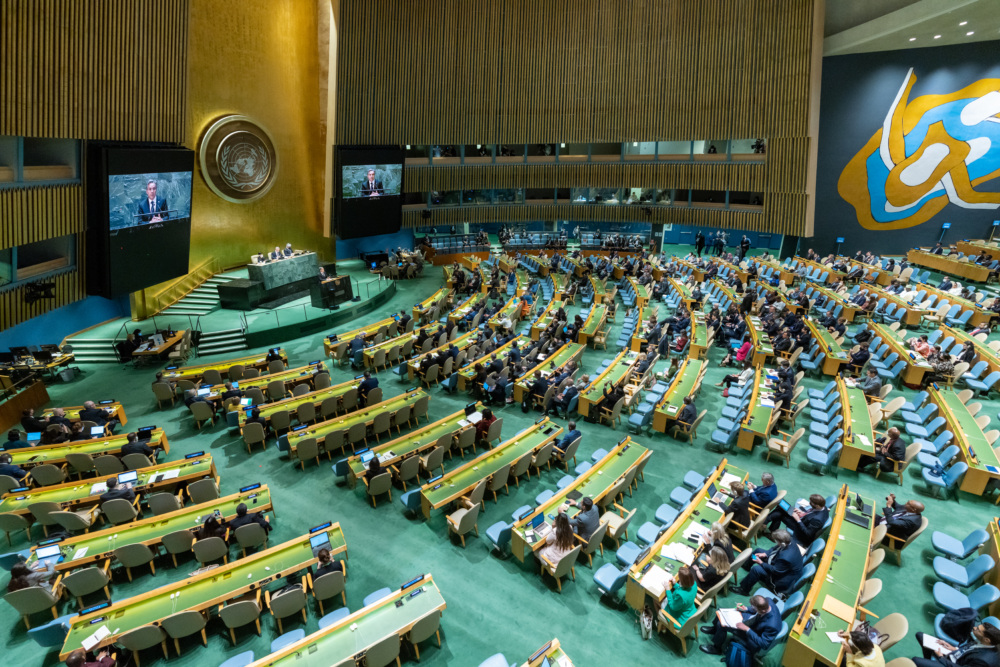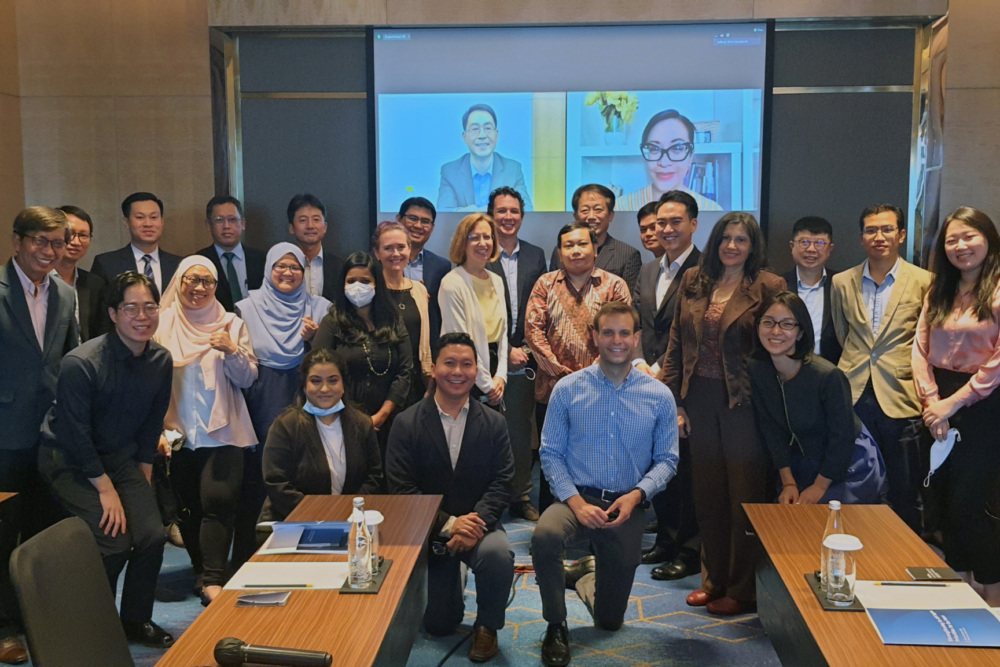
Mark Melamed
Deputy Vice President, Global Nuclear Policy Program
Atomic Pulse
About the image
One year ago, the tenth Nuclear Nonproliferation Treaty (NPT) Review Conference (RevCon) concluded without agreement as governments grappled with myriad challenges to the regime, including Russia’s invasion of Ukraine and the implications for nuclear security and efforts to reduce nuclear risks.
Next week, states parties to the NPT will come together in Vienna for the first official meeting of this new review cycle leading up to the next RevCon in 2026. They will weigh progress on the implementation of the 1970 treaty that was designed to prevent the spread of nuclear weapons while requiring five states—the United States, Russia, China, the United Kingdom, and France—to work toward disarmament. The July 31-August 11 Preparatory Committee (PrepCom) meeting is a key opportunity for states parties to move past last year’s setback and advance an agenda to reduce nuclear risks at a particularly dangerous time and strengthen the treaty that has long been the cornerstone of the global nonproliferation regime.
An initiative spearheaded by the Nuclear Threat Initiative (NTI) can help. Since 2018, NTI has worked to pave the way for progress within NPT forums through the Global Enterprise to Strengthen Non-Proliferation and Disarmament (GE). The GE has convened officials and experts from dozens of NPT states parties in a series of discussions aimed at catalyzing government action to make progress on the goals set by the NPT. Nuclear risk reduction has been a key focus of the GE’s work—a priority made even more urgent amid Russia’s invasion of Ukraine, nuclear threats in the context of that war, and growing tensions between the United States and China.
Thanks in part to the GE, efforts to reduce the risk of use of nuclear weapons have become an increasingly prominent part of the NPT discourse, including at the 2022 RevCon. While there is broad support for reducing nuclear risks in theory, concrete steps toward doing so have been hindered by states parties’ differing perceptions of the nature of today’s risks, in particular whether to focus efforts on incremental steps to reduce the risk of use of nuclear weapons or on nuclear disarmament as the only way to fully eliminate nuclear risks.
In the context of the upcoming PrepCom—and other preparations for the next RevCon in 2026—NTI convened a series of GE meetings to explore these contrasting perceptions of nuclear risk and help countries identify areas of potential common ground that could form the basis of a shared risk reduction agenda. The meetings benefitted from the participation of a diverse set of officials and experts from more than 20 countries who engaged creatively and constructively during two virtual meetings in March and May and one in-person session in Geneva in June.
As officials prepare to meet in Vienna, we encourage them to consider some of the key themes that emerged from these meetings:
Leaders cannot allow risk reduction and nuclear disarmament to slip into the ever-growing pile of seemingly intractable global security challenges. NPT states parties—especially the five nuclear weapon states recognized under the NPT—have an obligation to think and act creatively and ambitiously about how to reduce these risks. This PrepCom is an important opportunity for states parties to set aside the unresolved debate over the nature of nuclear risks and focus on kicking off a plan to concretely reduce the risks between now and the 2026 RevCon. The process won’t be easy, but it is a critical step in putting the world on a safer trajectory.
Sign up for our newsletter to get the latest on nuclear and biological threats.
NTI and the Asia Pacific Leadership Network co-hosted a workshop in Jakarta, Indonesia on how the Asia-Pacific region can promote success at the 10th NPT Review Conference.
Amid uncertainty around China’s expanding nuclear program and silence from Beijing about the intent behind the build-up, a new report offers details about China’s nuclear program that suggest significant implications for U.S. and global security.
"Visiting Hiroshima imparted to me a deep sense of responsibility as well as a renewed energy to work towards a world without nuclear weapons," writes Program Officer Ananya Agustin Malhotra.



